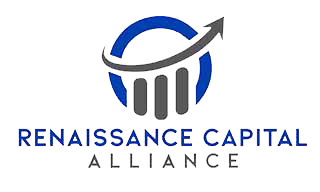Benefits of Leasing
In the United States, approximately 20% of all new capital equipment acquisitions are financed through leasing1. Although the US is one of the most mature leasing markets in the world, businesses around the globe are starting to realize the benefits that leasing offers. These advantages touch everything from working capital preservation to technological optimization.
Cash flow benefits
Unlike other forms of acquisition, leases do not require a down payment for the equipment. This means a company can use the extra capital to finance other lucrative opportunities. Alternatively, the capital can be used to purchase higher quality equipment. By spreading out the payments, companies can acquire equipment that would otherwise exceed their allotted annual capital budgets. A third option is to spend that unused capital on additional pieces of equipment. This can result in an immediate increase in productivity.
100% financing
Not only is the lessor capable of financing the entire cost of the equipment, the costs for installation and maintenance can be included as well. This allows for predictable payment amounts throughout the entire lifecycle of the lease. This also ensures that companies can plan for how many payments they have left and avoid budget killing surprise payments.
Overcome obsolescence challenges
One desirable category for equipment leases is IT equipment. This comes as no surprise due to the quick technological advancements that drive efficiency. The value a company receives from a piece of IT equipment can diminish as fast as 2 or 3 years. This leaves the purchaser with a high-priced investment with a quickly diminishing return. To avoid this costly mistake, companies rely on leases with short-term usage periods that allow for the acquisition of newer and technologically superior equipment as advancements are made. Applying this strategy reduces the chance of being outperformed by competitors. Although IT is notorious for its technology obsolescence challenges, other types of equipment also face this same dilemma.
Financing flexibility
Every organization has a different definition of what flexibility means. For some companies, the focus is on financial flexibility. These organizations value lessors that work with clients to create customized payment schedules. They look for plans that stay within budget and coincide with the organization’s cash flow structure.
Documentation flexibility
For other companies, flexibility means having the ability to add equipment to their existing leases without having to go through an extensive documentation process. Although leases are usually approved within a couple days, parties can create master lease agreements that allow for updates throughout the term of the contract.
End-of-term flexibility
Some companies lease for the end-of-term flexibility. Unless otherwise agreed upon by the parties, leasing presents companies with three options upon completion of the contract.
The options include:
· Purchasing the equipment
· Renewing the lease
· Canceling the lease and returning the equipment
Tax considerations
Tax considerations present attractive advantages for companies that lease.
· Bonus depreciation: Lessees can enjoy an immediate tax write-off for their lease payments instead of having to wait years to fully depreciate the equipment.
· Operating leases: For marketplace operating leases, or leases that leave the equipment with a residual value at the end of the lease term, lessors receive tax benefits for owning the equipment. These benefits can be passed down to the company leasing the equipment in order to keep the lease payments low. Additionally, operating leases help companies avoid triggering the mid-quarter convention.
· Finance leases: For marketplace finance leases, the lessee receives the tax benefits of equipment ownership directly. This financial leverage can assist the company in purchasing more expensive equipment or additional assets.
Reporting advantages
Operating leases also do not appear as a liability on the balance sheet. Companies touting their debt-to-equity ratio to investors will have a more attractive position on account of their decision to lease. Earnings can also receive a relative boost due to the lack of a down payment required for equipment leases. Despite seeming like minor benefits, these advantages can improve the financial wellbeing of a company from the perspective of key stakeholders.
Taking a deeper dive into why companies lease reveals a wide array of advantages. To find out how leasing can have a positive impact on your operation, speak with a leasing expert at RCA. We have the hands-on experience to structure a financial plan that fits best for your team.
1Leasing: The Creative Financing Alternative, 2019, Sudhir P. Amembal


Comments are closed.